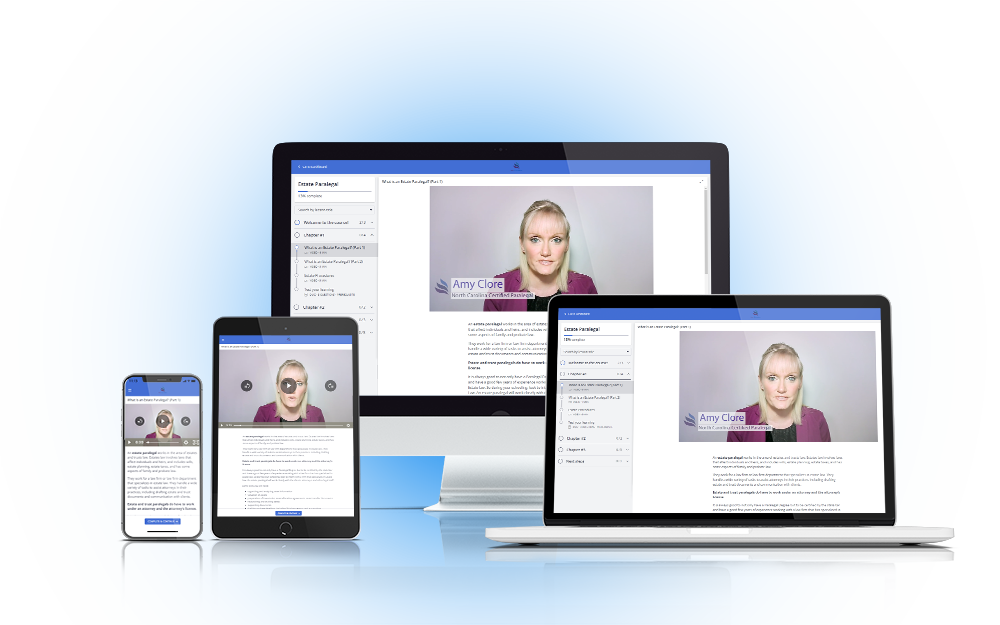Career Advice
Ready to Land Your Dream Job?
When you are looking to make a career transition for one reason or another, you want to be focused, thoughtful and efficient. We want to help you do this by providing you with a single source of information for all your career path needs. Below is an organized list of tips, documents, advice and other resources specifically for legal professionals that you can use to help you along the way. We believe this is an excellent resource because it gives you a recruiter’s perspective who more often than not is the gatekeeper to the jobs.
You can also sign up to receive our newsletter to have career information delivered directly to you.
Resume
Understanding Resumes from the Recruiter's Perspective
When it comes to creating your resume, we think it is extremely useful to understand how the recruiter will review it. You may have already heard that you only have 5-10 seconds to make an impression. While this can certainly be true when the recruiter has a large pile of resumes to go through, its not always the case. However, it’s best to assume you only have 5 seconds anyway. In today’s hi-tech environment, things have changed quite a bit with computers joining the fun. Many firms, have Applicant Tracking Systems (ATS) to collect and manage candidates which allow recruiters to run searches to filter out candidates that don’t appear to qualify. This is the important part. This means that many qualified candidates are being overlooked because their resume formats are incompatible or don’t contain the correct keywords the recruiter used in his/her search. While some of this could be the result of an inexperienced recruiter using an incomplete or different search term(s), your resume should always be structured and written so that the key terms and skills for your field (along with their synonyms) are easily spotted by human eyes and searchable by software programs like an ATS. Keep on reading, because this is just the tip of the resume iceberg….
The Summary
We believe every resume should have a summary at the top because it gives you a chance to quick sell yourself and highlight some intangible assets you have to offer that don’t fit neatly in the other areas of your resume. Just don’t get too wordy or you will lose the reviewer. This is also a great place to customize your resume for a specific employer or opportunity and highlight your related skills to wet their appetite to continue reading. Just remember to tie in the rest of your resume so the reviewer can see where the skills you highlighted were gained and how much of it you have.
For example, if you are a civil litigation attorney with trial experience as a first chair opening and closing arguments, put this in the summary. These are great selling points to add to your summary when applying to a law firm that does a lot of heavy trial work.
Layout and design
In our opinion, the layout and design of your resume is EXTREMELY important. Remember the 5-second rule? If your resume looks cluttered or too busy it can turn off the reviewer. The same is true if its too hard to find out if you even qualify for the job. Make sure to get to the point quickly and leave out the fluff. This isn’t a high school book report with a minimum word count! Also, make sure that your resume is organized in a way that highlights your applicable skills for a given opportunity at the top of your resume. Not many people, if any, start to read from the bottom or middle. Remember the summary section? This is a great example of using the summary to highlight skills and experiences that you gained from a previous employer(s) that is not your current or latest employer.
Another tip is to tweak your resume for each job you apply for and highlight the skills that are relevant to that job and employer. It is a good idea to clearly name and save these resume versions in case you need them again. Regardless of the resume version and layout, it is a good idea to keep your resume limited to one page or two at the most. This may be difficult for our more experienced candidates, but you will need to compress your oldest jobs while still highlighting your relevant experience. Keeping the job history of your last 10-15 years will be sufficient for most everyone. An exception to this would be if your experience is largely project based and you need to display the experience gained at each project. In these cases, it is still a good idea to summarize the projects within the first two pages and then provide the project details after so the reviewer can dig deeper if they want.
One other thing, please do NOT use fancy fonts and font spacing, pictures, or themes and separators in your resume! These are reserved for artists or marketing people, which you are not. These may satisfy your creative side and provide finishing touches that look really nice, but they can also create problems for software programs that need to parse them while adding your information to the database. This can cause your profile to become corrupted and you will miss out on opportunities. Keep things simple by using standard fonts like Arial, Verdana, or Times New Roman; and leave out pictures and fancy themes and separators. Instead, use bold typeface, underlines, spaces and bullets to create organization and separation that makes reading your resume an eye pleasing experience, but don’t go overboard.
Check out our example of a solid resume template. It was created in MS Word (.docx) and designed for quick input so you will need to download it first in order to view and use it properly.
Keywords & Other Important Info
We are going to start out simple and obvious in this section. Make sure to put your full name, phone number, and email address. Believe or not, some people don’t include one or more of these! When providing your phone and email, use your personal email rather than work; and make sure your email is professional! We can guarantee that very few firms will email you back if your email is sexymama123@yahoo.com. Emails are free and very easy to create.
Now that we’ve made it thru the obvious, what about the rest of your resume? What are keywords? Keywords are catch words that are important and specific to your profession. For instance, eDiscovery, trial, first or second chair, billable hours, State Bar license, and certified paralegal are all key words that are specific to the legal profession for attorneys, paralegals and legal assistants. Also, the industry and type of law you worked in are important like insurance defense or commercial real estate and business law or civil litigation. Specific software or programs for case management, docket and calendaring, document management, trial presentation or litigation support are also important keywords, but mention the name of the tool as well because some are more desirable to certain employers.
You should also think about how to incorporate synonymous words. Why, you ask? If you’ve read the above sections, you will remember that technology is being used to parse your information into a database like an ATS. Many times, this is done automatically without human intervention. This means that you resume may never get viewed if you don’t follow the advice above and use the proper keywords. This is because human intervention may not occur until a query is made either manually or by a job request. Both require a human to choose the words to search for in the database. Some more sophisticated systems can automatically apply synonymous words when running queries, but it is safer to assume otherwise. Let’s face it. We all don’t think about things the same or use the same words to describe things. By adding other common words to describe your role, skill, function, etc., you will increase your chances of being included in search results. You will need to exercise some judgement here because not everything has an important synonym; and you don’t want to jumble things up or have a 12 page resume either.
File Format
The file format you choose can make or break your resume submission. As mentioned above, automated parsing is very common these days and can happen before a human even lays eyes on your resume. Many people use a word processor like MS Word which creates .doc or .docx files which are predominantly used and readable by most. Another very common format is Adobe’s .pdf format. Regardless of the format you choose, you need to make sure your audience, human or machine, can open and read it. Adobe’s .pdf format allows the user to lock the file to prevent others from editing the file, which is NOT good in this case. Another common issue is the file is saved as an image or has been scanned, which also prevents parsing. One way to tell if your file is locked or an image is to try and select individual words in different areas of your resume from top to bottom. If you can, then your file is readable. Otherwise, you will need to re-save your file using the original source file or convert the .pdf file to a readable format using an OCR program like Adobe or FREE Online OCR.
References
References are definitely important, but do you need to include them on your resume? We don’t think so. If you have the space to spare, you can include a line at the bottom that “References are available upon request”. However, we think its safe to assume that you will provide references if your potential employer asks for them.
What is more important in regards to references is that you choose the right ones that will speak highly of you and can speak directly to your specific skills related to the job you are applying. However, if you don’t have all the skills required for the job then choose a reference that can speak to your soft skills that will make you a great fit to the organization like independent learner, going the extra mile and a team player. Also keep in mind that employers and recruiters prefer and will value references from your supervisor or manager more than a co-worker.
Another very important step is to ask or inform your reference that he or she may be contacted by a potential employer. Not only is this a common courtesy, but it also prepares your reference so they are not taken by surprise and can be more prepared to give you a glowing report.
Cover Letters
For some reason, cover letters have stopped being a thing. We don’t see too many of them these days, but when we do, we notice them (hint hint); and they don’t interfere with our software parsing. Some years ago, people started using graphics and fancy fonts to try and make a memorable impression on the reviewer. While that may have worked in some cases back then, it certainly causes problems today. Cover letters on the other hand, are a great opportunity to stand out that offers real substance rather than just a cool graphic. Similar to the summary, the cover letter gives you more freedom to connect with your potential employer and explain who you are and how you will be an asset. This is not the place to tell a sob story or write the next great novel, but it certainly gives you more word space to not only sell yourself, but to also showcase your writing skills, which is especially important for attorneys and some paralegals. Don’t miss out on this opportunity to stand out from others. You may be the only one who does!
Applying for Jobs
Many people tend to mass apply using the same generic resume which dilutes your effectiveness and can damage your chances of getting the attention you need at this stage. Do NOT do this! We feel strongly that a thoughtful approach to applications is tremendously more powerful. Take your time to learn about the employer, what they do and the people. You can get most of this information online very easily; and many employer websites will have great information about their firm and even the current employees. You can take this information and look at the backgrounds of some of these people that are similar to the position you are applying. This is not meant to be a long, in-depth and creepy investigation; just a quick dive into the firm and its people so you can use this information to customize your resume to be in line with the job function, company practices and culture. You should also make sure that the job aligns with your personal career goals and that the commute makes sense for you. You don’t want to unnecessarily fill your resume with short job stints that can make you look like a job hopper.
Once you have done your research and tweaked your resume and cover letter accordingly, you are ready to apply. You should keep a log of the jobs along with the dates you applied for each job. And for goodness sake, follow up with an email or phone call even if the job is through an agency. Make sure you also comply with all requests stated in the job application. If it asks for a sample writing or a cover letter (we think you should send one anyway) make sure you include one. This will not only show your ability to follow instructions but also your commitment and interest. It is a HUGE turn off when applicants don’t follow simple instructions. This may make the employer wonder, “How will they be able to handle more important tasks if they were hired?”
You may be thinking, “Why not just submit my resume in bulk? Wouldn’t more exposure increase my chances?” We think this is an emphatic “NO!” When you don’t take the time to thoughtfully prepare yourself and your resume for presentation to a company and job opportunity, it can dilute your effectiveness over time. Not only will your resume fail to highlight your strong points, grab the recruiter’s attention and show how you are a strong match for their organization, but you will lose track of which companies and jobs you applied. The impact of this can engrave your name into the mind of the recruiter as someone who is not a good match if they continue to see your name over and over again even for different positions! This is especially true if you have a unique and memorable name. Remember, busy recruiters may be looking for reasons to exclude you from the mountain of other resumes they need to get through.
Interviewing
Before the Interview
It should go without saying that you should learn as much about the your potential employer as possible well before your interview. Ideally, you would have started educating yourself before even applying so you could customize your resume and cover letter to match and highlight your skills to address the needs of that employer; but now that you successfully caught the recruiter’s attention and made it thru the first set of doors, you need to be more prepared to speak with the hiring manager and other decision makers. These are the people that are on the front lines so not only will you need to be prepared to talk about yourself and experience, but you will also need to prove to them that you understand who they are and what they do and how you align with the firm’s goals and make a great fit. This is where you will spend a bit more time learning about the firm’s history, cases they’ve won (or even lost), areas of practice and how many offices they have.
You will also need to make sure you know how to get to the interview from wherever you will be at the time. Google Maps allows you to not only define your start and end points, but also estimate the travel time based on the time of day. You will need to give yourself additional time to find parking, walking and navigating the streets and building. It always better to have a few minutes to spare so you can do breathing exercise to calm your nerves or listen to music that pumps you up before the interview begins. And remember its always better to be early than late.
If you are just having a phone interview, then make sure you have a private room without distractions from other people or needy kids. You may also want enough room to walk as you talk to help control your nerves. Some people like to hold a pen, paperclip or other widget to keep their minds focused.
Its not uncommon for your first or second interview to be a web meeting. In these cases, make sure you have the link and try to join at least 30 minutes prior. This should give you sufficient time to test your internet and the meeting’s connection. Unless you already use the web meeting tool, most require you to download a small application or even register before you can join the meeting. It’s also a good idea to be prepared to call into the meeting in case the connection is not strong enough to handle both video and voice.
Regardless of the format of your interview, it goes without saying that you should be showered and dressed appropriately. For the legal professional this means business attire. If you are unsure, then its always safer to be overdressed than under. For web meetings, don’t try to be the next viral YouTube blooper by only wearing the top portion of your suit!
Other things you should have ready include a list of appropriate questions (see next section), notes on the job and employer, a copy of your own resume, pen and paper, and a bottle of water to wet your whistle.
What Questions Are OK?
Sometimes the types of questions to ask can appear gray because some employers move faster than others, are more relaxed, or have more red tape to follow. So the focus of this section will be on the concept behind your questions, rather than specific questions. It is a good idea to ask questions that:
- Show your eagerness to learn and grow within the company
- Show your interest in the job
- Show interest in the company itself
- Show interest in the specific practice area(s) of the position or firm.
A really beneficial way to ask questions is to interject what you know on the topic. For example, “There are five other insurance defense firms in the area, how does ABC Firm differentiate themselves from them?” or “I see that the firm just started offering Estate & Trusts services two years ago. How has the growth been since then?” While these may not be the best examples for your situation, the idea is the same – to show that you’ve done some homework or have some knowledge on the topic.
What NOT to do
Some of these may seem obvious, but let’s list them just in case. Here are some ideas of what turns off employers:
- Do NOT trash talk your current or previous employers or co-workers. It’s just unprofessional and adds no value; in fact it may reflect poorly on YOU!
- Don’t ask questions about the job that show potential problems with your work ethics like “Will overtime be required?” or “What time does the workday end?” This will raise the alarm and scream performance issues and problem child.
- If it’s your first interview, it’s generally not a good idea to talk about salary unless the employer does. It may be fine to briefly discuss their health benefits to make sure they offer them, especially if its a deal breaker for you. However, the first interview is usually a discovery and validation session for both parties to see if personalities, skills, and experience appear to be a match.
- Don’t hesitate when answering questions about yourself of your experience. Our nerves can play a number on us, but if there is one thing we should know clearly, it’s ourselves. When you hesitate, the employer may doubt your experience or capabilities. Many people lie on their resumes. If your nerves do get the better of you, be honest and tell them right then and there. Most employers will understand and help you along. It may also help you just by getting it off your chest.
- Don’t look away while talking. This can come across as disrespectful. If you are shy and struggle looking into people eyes, look at their chin or forehead instead. It will still appear that you are looking right at them.
After the Interview
These days it seems common courtesy is not so common. One way to be forgotten is to simply ignore people. If you want a potential employer to remember you, its a good idea to send a hand written letter (preferred) or an email thanking them for the opportunity to meet with them. Not only does this put your name back into their memories, it also gives you another chance to remind them why you are the one for the job. Remember, the name of the game is to stand out from your competition. Since it appears fewer people are following up these days, this could make all the difference in the world!
Even if you are not interested in the opportunity, it may still be a good idea to follow up because you never know when another opportunity may present itself that is of interest. Don’t forget hiring managers change jobs too, so that interesting job may even be with a different company down the road!
Networking & Social Profile
Job Boards
Most people have or will create a profile on a job board and apply to a job opportunity. The most common job boards are Indeed, ZipRecruiter, GlassDoor, Monster, CareerBuilder and LinkedIn. Some of these, like LinkedIn, are more than just job boards, but the idea here is still the same. If you apply to a job through these types of online job sources, make sure your profile is up to date along with your latest resume and the two are in sync with each other. In other words, if you recently got married and you changed your last name or you moved to another state or you changed jobs, make sure to update your profile along with your resume.
You may be thinking, why should I do this if my resume is updated? The answer is simple. Inconsistency breeds doubt. You will appear like you aren’t really truly looking for a job or like you’re not a thorough worker. Why take the chance that you resume is passed over because your profile doesn’t match when ten other applicants did? If a recruiter, has a hundred resumes to review, they may be looking for a reason to exclude yours so they can just get thru the pile. Don’t give them any reasons! In addition, your profile information may be used in search queries and if yours is outdated, you may miss out.
It’s such a simple task to keep your profile updated so just do it.
LinkedIn is the most widely used professional website on the planet, yet some professionals still don’t use it or use it ineffectively. This section is not going to teach you how to use it, but will point out the basic requirements that should be applied:
- Update your profile completely. This means your email, location, employment history, skills, etc.
- Activate the Interested in new opportunities feature. Make sure you respond to recruiters or the feature will automatically turn off!
- Upload your resume
- Search for professional connections you know to increase your network
- Ask for recommendations from people you’ve worked with to validate your skills and experience
Other Social Media Profiles
Rather than attempt to list all social media sites and offerings, we’ll just mention a few of the more popular ones and use them as representatives for the group. Anything you post on Facebook, Twitter, TikTok, etc. can potentially be seen by employers. This includes that one wild night at your friend’s bachelor/ette party, your strong political views, or your proud and expressive body tattoos. We are all certainly entitled to have our own beliefs, interests and fun and none of these examples, by themselves, should prevent you from getting a job you qualify for because that would be discriminatory. However, they could leave the wrong first impression with a potential employer which could be the deciding factor if it came down to a choice. And even if you suspected discrimination, the burden of proof would lie with you to prove the employer acted discriminatorily. If your ultimate goal is to get a job, then you want to minimize anything that may create doubt for an employer. In this case, you would want to remove the pictures of the wild party night or mark them as private (ask a friend to test) while searching for a job or perhaps for good…
Some people believe that everything you post on the internet remains on the internet in some form or another and can be discovered by a determined person. Hmmm.
Take Your Skills to the Next Level with Our Exclusive, On-Demand Courses!
Enhancing your skills shouldn’t be a challenge. Our on-demand courses instructed by industry professionals, make training more efficient and effective.
- Increase your recognition & job worth
- Targeted learning that fill skill gaps identified by real legal employers
- Tailored courses for learning efficiency & effectiveness
- Immediate real-world results making you more competitive
- Automatic inclusion in Ave Staffing Hot Lists for future employment opportunities
- Learn anywhere at anytime on your desktop or any compatible mobile device!

Featured Courses
More from Ave Staffing
Legal Salary Guide
Our 2024 Legal Salary Guide is here. Find out how much you should be offered now.
On-Demand Training
Take your skills to the next level with Ave Education’s on-demand courses.
Looking to update your legal resume or have an upcoming interview? Stay ahead of the curve with our Job Search resources. We pride ourselves in going above and beyond to prepare our candidates for interviews and job applications. Whether you’re based in Charlotte, Raleigh, Greenville, Columbia, Charleston, or Durham – we’ll make sure you feel prepared to pursue your next job! Learn more about tips and tricks on how to apply for jobs, and stand out as a candidate. Our legal and engineering staffing agency specializes in hiring top talent in North Carolina, South Carolina, and even nationwide! With experience in legal and engineering staffing for North and South Carolina, Ave Staffing provides full service for permanent and temporary placement for legal support personnel, paralegals, attorneys, and more. Contact us today to connect with one of our top recruiters. Our legal employment agency’s service is unmatched and provides support to both corporate businesses and law firms. Apply as a candidate to register to our job opportunities. We specialize in placing temps, contract-to-hire, and direct-to-hire.






